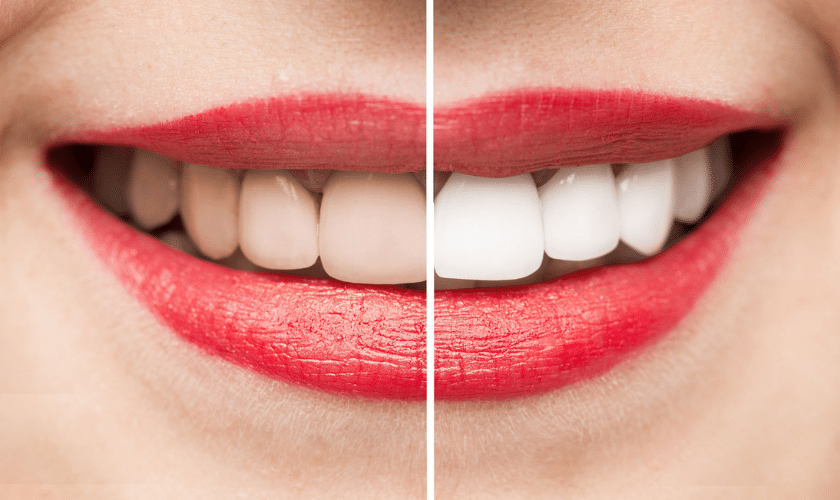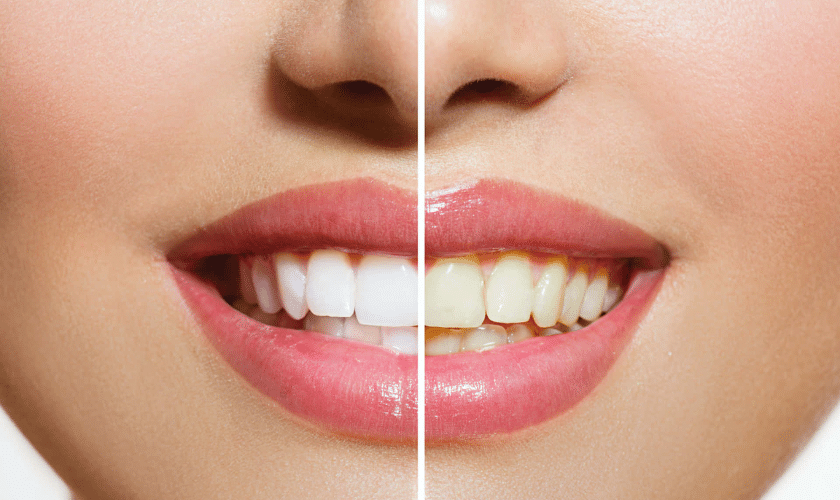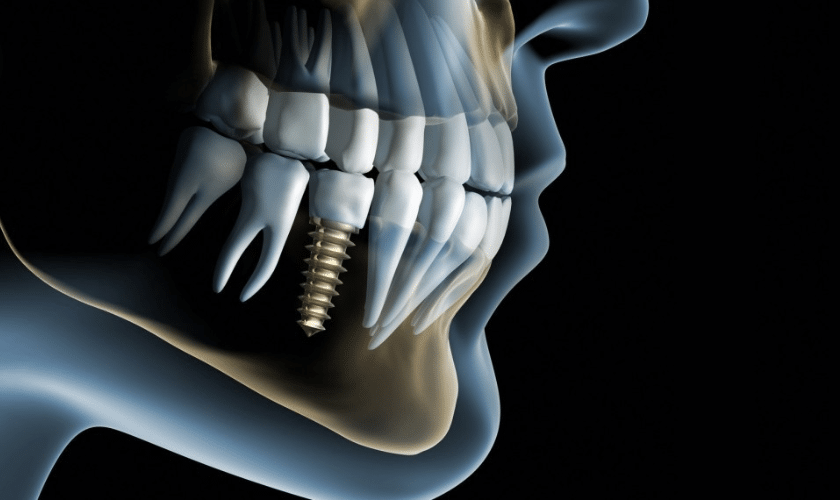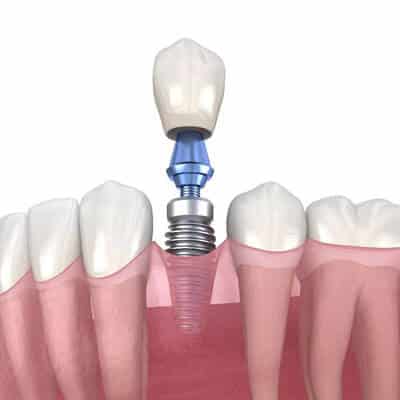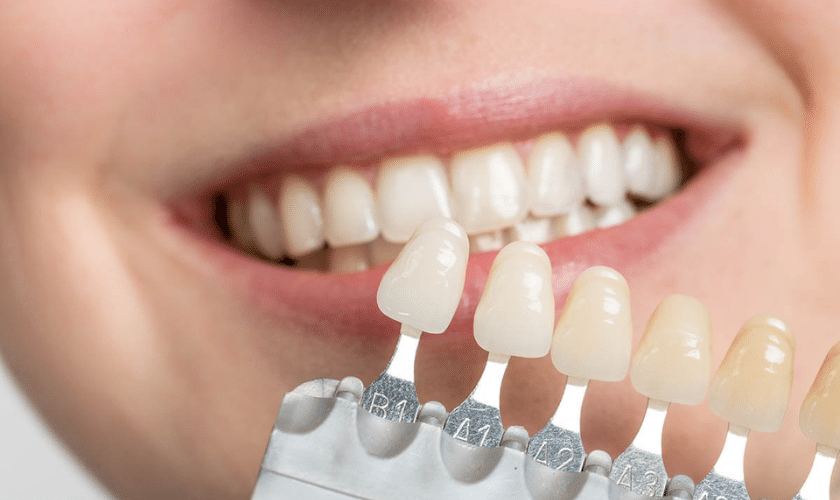
A beautiful smile is often the first thing people notice about you. However, missing or damaged teeth can cause embarrassment and self-consciousness. Luckily, dental implants and bridges are two common solutions for restoring your smile’s functionality and aesthetics. But which one is better? In this blog post, we’ll explore the differences between dental implants and bridges to help you make an informed decision on which option is best suited for your unique oral health needs. So sit back, relax, and let’s dive in!
What are Dental Implants?
Dental implants are a popular solution for those with missing or damaged teeth. They consist of a titanium post that is surgically placed into the jawbone, which acts as an artificial tooth root. Once the implant is securely in place, a dental crown is attached to it, completing the restoration.
One of the benefits of dental implants is their durability and longevity. With proper care, they can last a lifetime! Unlike bridges, neighboring teeth aren’t affected since there’s no need for additional support from adjacent teeth.
The process of getting dental implants involves several appointments over several months. During your initial consultation, your dentist will evaluate if you’re a good candidate for dental implants by examining your oral health and taking X-rays. If you have any issues such as gum disease or bone loss, these must be addressed before implant surgery can take place.
Once you’re cleared for surgery, local anesthesia will be administered to numb the area before making incisions in the gums to access the jawbone where posts are inserted through drilling holes at specific angles and depths based on individual needs and preferences.
Dental implants offer many benefits but require careful consideration due to their invasive nature and higher cost compared to other options like bridges or dentures.
What are Bridges?
Bridges are dental prosthetics that replace one or more missing teeth. They consist of an artificial tooth called a pontic, which is held in place by two dental crowns attached to the remaining natural teeth on either side of the gap. Bridges can be made from various materials such as porcelain, metal alloys, or ceramics.
To create a bridge, your dentist will first prepare the anchor teeth by removing some of their enamel so that they can support the crowns. Then, impressions will be taken to create a custom-made bridge that fits precisely into your mouth.
The placement process for bridges typically requires two appointments and can take several weeks to complete. During this time, you may be fitted with temporary bridges until the permanent ones are ready.
One advantage of bridges is that they are relatively affordable compared to other options like implants. Additionally, they require less surgery than implants and can often be completed within just a few visits to your dentist.
However, there are also some downsides to consider when it comes to choosing bridges over other treatments. For example, they require healthy neighboring teeth as anchors which may not always be present in patients who have lost multiple teeth at once.
Bridges remain a popular choice for those seeking restorative dentistry solutions and provide an excellent option for restoring both function and aesthetics after tooth loss.
What are the Differences between Dental Implants and Bridges?
Dental implants and bridges are both types of dental restorations that can help replace missing teeth. However, they differ in several ways.
Firstly, a dental implant involves the placement of a metal post into the jawbone to serve as an artificial tooth root. This post is then topped with a crown to mimic the appearance of a natural tooth. On the other hand, bridges involve attaching prosthetic teeth to adjacent natural teeth using dental cement or metal clasps.
Secondly, while implants require surgery for placement, bridges do not. Instead, they can be fitted within two appointments at your dentist’s office.
Another difference between these two options is their lifespan. Dental implants last longer than bridges because they are anchored directly into the jawbone and integrate with it over time. Bridges typically need replacement after 5-15 years due to wear and tear.
Dental implants tend to be more expensive than bridges due to their surgical procedure requirement and materials used for construction.
When considering which option is best for you, it’s important to factor in your specific needs and budget along with consultation from your dentist or oral surgeon.
Which is Better for Your Teeth?
When it comes to determining which dental procedure is better for your teeth, there are a few factors that you need to consider. Dental implants and bridges both have their own unique advantages and disadvantages.
One of the main benefits of dental implants is that they are long-lasting and durable. They are designed to function like natural teeth, allowing you to enjoy all your favorite foods without any restrictions. In contrast, bridges may not last as long and require replacement after a certain period.
Another advantage of dental implants is that they can help prevent bone loss in your jawbone. When you lose a tooth or multiple teeth, the surrounding bone tissue begins to deteriorate over time. Dental implants stimulate the growth of new bone tissue, keeping your jawbone strong and healthy.
On the other hand, bridges can be an excellent solution for people who prefer a less invasive procedure than implant surgery. Bridges do not require any drilling into your jawbone or inserting titanium posts into the gum line.
Ultimately, whether dental implants or bridges are better for your teeth depends on several individual factors such as oral health condition, personal preference, and budget constraints. Thus consulting with an experienced dentist will help determine which option would suit best according to one’s needs.
After discussing the differences between dental implants and bridges, it is clear that both options have their advantages and disadvantages. Dental implants are a more permanent solution with better long-term benefits, while bridges provide a quicker and less invasive option for those who do not want to undergo surgery.
Ultimately, the decision of which treatment to choose depends on various factors such as your oral health condition, budget, personal preferences, and the recommendations of your dentist.
Before making any decisions about tooth replacement options, be sure to consult with your dentist. They can help you weigh the pros and cons of each option based on your specific needs. No matter what you choose, taking care of your teeth through proper oral hygiene practices will ensure that they stay healthy for years to come.

